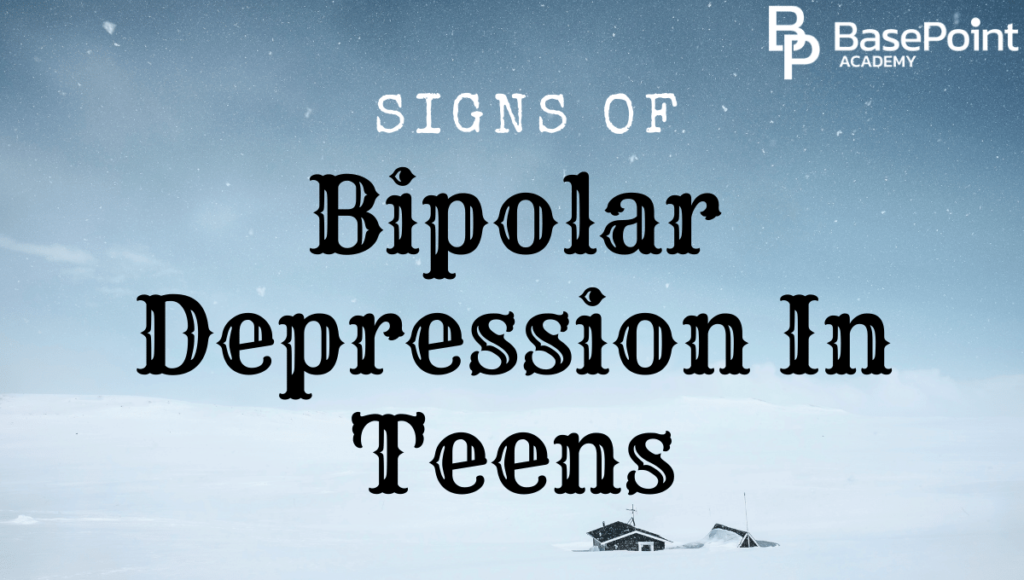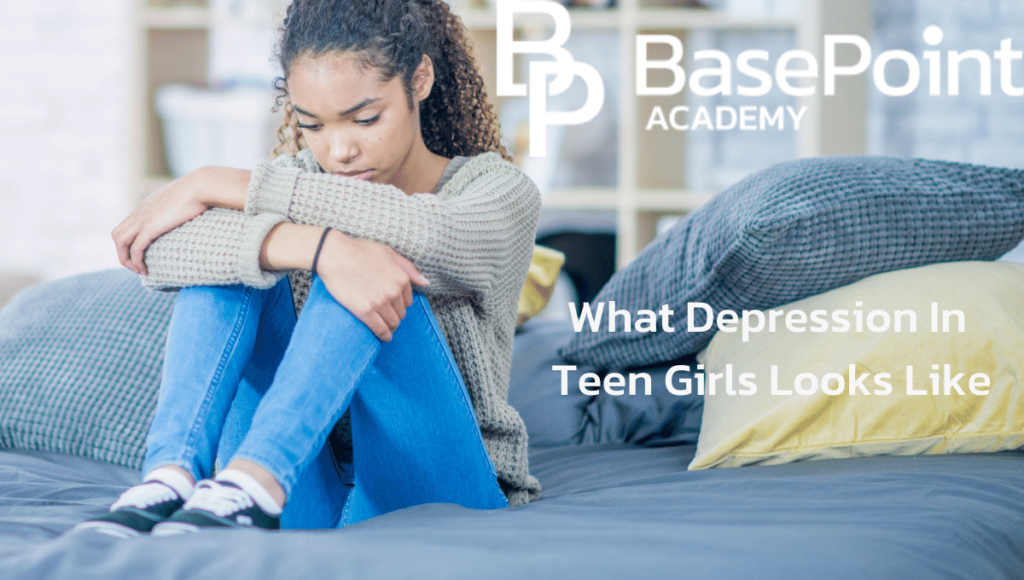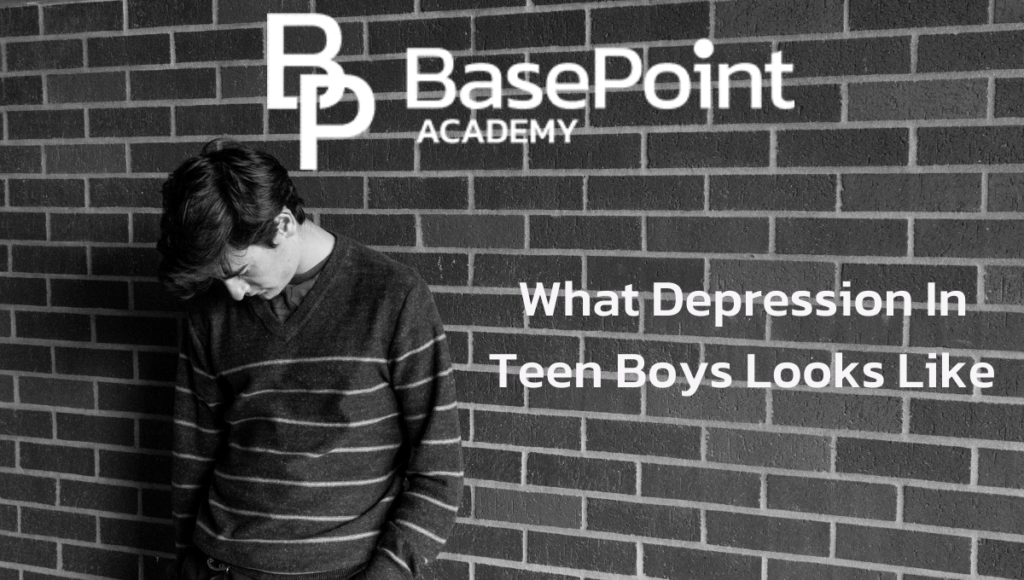Signs Of Bipolar Depression In Teen Boys and Girls

What Depression In Teen Girls Looks Like

Depression in teen girls can sometimes present itself differently than in teen boys. This can result from upbringing or the pressures of society and gender identity. Even now, as our society is changing its views on gender roles, it can create depressive disorders as teens figure out their place in the world. We previously explored what depression in teen boys looks like. Now, we venture into how depression affects the average teenage girl. What Does Depression In Teens Look Like? Depression in teens can look the same as for the adults in their lives. They may isolate, become moody, and sleep patterns shift. Causes for depression in teens can include: Academic pressure Peer pressure Brain chemistry Major life changes Traumatic experiences Inherited traits Hormonal changes Learned negative thinking While it doesn’t seem like these would cause a difference between boys and girls, they can. How Does Depression Differ For Girls? Depression in girls can vary based on hormone influxes. While boys also experience hormone influxes, the hormones involved can be different. Teen girls are menstruating also creates hormone changes that teen boys won’t experience. Girls are likelier to experience bouts of sadness and cry over the slightest things. They may not seem serious to you, but at the moment, they are crushing. Like boys, girls are not “supposed” to show certain emotions. If they lash out in anger, they are being “dramatic.” If they cry, they are “overly emotional.” You see the pattern that develops! Who wants to express themselves to their closest persons when their emotions are invalidated? Effective Treatments For Teen Depression Fortunately, there are effective treatments for teen depression for boys and girls. These treatments look the same but can be personalized for individual experiences. These treatments include: Partial hospitalization Cognitive-behavioral therapy Medications Partial Hospitalization Partial hospitalization is for teens who need extra assistance with their mental health. They spend their days in our facilities and have a day full of treatment. They go to group therapies, individual psychotherapy, and medication management. They spend the evenings at home with their families and practice what they have learned there. Cognitive Behavioral Therapy Cognitive-behavioral therapy is an effective tool for reframing negative thought patterns. This is where they identify the ways of thinking that have been harmful to their mental health. Then they learn how to change their thinking. This is also where they learn how to identify their emotions, express them in a healthy way, and cope with them. Pharmacological Solutions For some teens, medications help manage the symptoms of their depression. Medications that are used in conjunction with therapy are the most effective solutions. In some cases, a teen can eventually wean off medications as they successfully use the tools we teach them. You Can Help Your Teen Girl At Home You don’t have to rely solely on a medical team to help your teen get through depression. Families who try together can overcome serious obstacles. If you feel helpless, include some family therapy so you can all be on the same page. However, at home, you need to have some pleasant family activities that help with bonding. These activities include: Outdoor activities – hiking, camping, bicycle riding, swimming Family fun activities – bowling, roller skating, mini-golf Family game night – board or card games Family movie night – go out or stay in Chip in with a chore – is their closet insane? Offer to help them out, so they aren’t overwhelmed. Pro-tip, leave them in charge of how it is done. Cook dinner together Join/play a sport together workout/go to the gym together Family Music Night – play music from your era and theirs and learn the dance crazes How BasePoint Academy Can Help You BasePoint Academy, strategically located in Arlington, Forney, and McKinney, TX, is easily accessible from Dallas and Fort Worth. As a trusted leader in adolescent mental health treatment, we address behavioral and mental health disorders that impede a teenager’s progression towards a balanced, fulfilling life. Our wide range of services includes teen counseling, therapy, and tailor-made treatment programs for teen girl’s behavioral health. We acknowledge the financial implications of seeking high-quality mental health care and thus accept health insurance and offer flexible payment plans. Committed to supporting academic pursuits, we provide intensive outpatient depression programs and partial hospitalization depression programs, ensuring treatment aligns with educational commitments. At BasePoint Academy, our brand voice resonates with professionalism, information, and persuasion, underpinned by our expertise and passion for mental health treatment. We harness the power of storytelling, expert testimonials, emotive language, and descriptive phrases to communicate our credibility and the uniqueness of our programs. Clear headings further underline the effectiveness of our offerings. In line with our commitment to remain an accessible mental health partner, we offer free depression assessments for teens. Our overarching goal at BasePoint Academy extends beyond treating symptoms; we’re dedicated to empowering teens to navigate the challenges of adolescence and blossom into the best versions of themselves. Contact our teen depression helpline for assistance today.
What Depression In Teen Boys Looks Like

Understanding Depression in Teenage Boys Depression in teenage boys is often misunderstood and overlooked due to societal expectations and differing symptoms compared to girls. Depression in adolescent boys and males can manifest through irritability, anger, and disengagement rather than the typical sadness often associated with depression. Boys depression often includes signs such as trouble sleeping, withdrawing from family or friends, and losing interest in activities once enjoyed. Anxiety in teenage males frequently accompanies depression, worsening the emotional toll on their mental health. Identifying these changes early is crucial for providing the support they need. Symptoms of depression in teen boys, such as poor concentration, low energy, and mood swings, can significantly affect academic and social performance. Teenager boys may hide their feelings, making it harder for parents and teachers to identify the issue. Counseling for teenagers with depression offers a safe space for boys to explore their emotions, understand their struggles, and develop coping strategies. Depression is a mental health disorder that affects people of all ages and backgrounds, including teenage boys. In recent years, speaking about this important topic has become more common, but it’s important to realize that depression in teen boys is different than for teenage girls and vice versa. Recognizing the warning signs of depression in a friend or family member can be life-saving, and the right information will empower you to help yourself and others. Keep reading to learn more about the common signs, impacts, and teen depression treatment options available to help your teenage son overcome depression and thrive. What Does Depression In Teens Look Like? In general, depression symptoms in teens can manifest as mood swings, oversleeping, and experiencing low energy. The symptoms will vary from person to person and can also include experiencing feelings of hopelessness, hypersensitivity, and losing interest in activities that used to be enjoyable. Some risk factors for depression include social isolation and a family history of depression or other mental health disorders. Mental stress in teens is a common trigger for depression, which can be brought on by high expectations at home or school. Here are some common causes of depression: Mental stress and pressure Being bullied at school Divorce or family conflict Childhood trauma Loss of a loved one Alcohol or drug use How Does Depression Differ For Boys? Symptoms of depression in teen boys often include increased aggression, angry outbursts, sleep disturbances, and difficulty concentrating. Historically, depression has been considered a feminine issue that affects girls and women, creating an unfair stigma for boys and men who may be experiencing the same challenges. Boys are often expected to maintain a facade of toughness and not express their feelings, making them less likely to seek help if they struggle emotionally. Effective Treatments For Teen Depression Many effective mental health treatments for boys are available for teen depression, ranging from therapy to alternative medicine to making lifestyle changes. In some cases, being prescribed the right antidepressants can greatly help. Teen treatment for depression requires a specialized approach, as no one size fits all treatment program can address mental health disorders. Cognitive Behavioral Therapy Cognitive Behavioral Therapy, also known as CBT, is a form of psychotherapy that has been proven effective in treating teen depression. CBT techniques help people recognize connections between their thoughts, actions, and feelings. By creating more awareness in the present moment with the help of a therapist, teenagers can gain clarity about why they have been making certain choices and become empowered to create new habits. Cognitive Behavioral Therapy can also include learning new skills such as goal setting, time management, and emotional regulation techniques. As your teen gains vital life skills and develops a solution-oriented mindset, they can make leaps and bounds in creating healthy patterns that support their mental health and well-being. Partial Hospitalization Sometimes, a case of depression can be severe enough to risk a teen’s safety and well-being. In these situations, a partial hospitalization treatment program can manage symptoms such as suicidal feelings and help the individual regulate their emotions. A partial hospitalization program may include being prescribed anxiety and depression medication by a teen psychiatrist and attending therapy sessions during the day. Partial hospitalization treatment programs are tailored to an individual’s needs and are designed to be age-appropriate in group counseling and therapy sessions. Pharmacological Solutions Sometimes depression and anxiety medication is needed to help regulate symptoms of depression in teens that other treatments aren’t assisting with. This medication can be life-saving, enabling teens to function and participate in daily life. You Can Help Your Teen Boy At Home As a parent or family member, you have a great deal of influence over your teen’s well-being. Perhaps your son isn’t getting enough sunshine or would benefit from eating more nutritious meals and snacks. In addition to providing a safe and loving home environment, here are some healthy family activities to enjoy: Take a family walk after dinner or on the weekends Prepare meals together as a family, getting everyone involved with the fun, creative aspects of cooking Have a designated device-free time on school nights to play a game or work on creative projects as a family How We Can Help You Untreated depression poses a serious risk to the health and well-being of the people you love and care about. Teen depression doesn’t go away by itself and can sometimes get worse as time passes. If your teen boy is struggling with depression, you are not alone. As compassionate mental health professionals, we understand how important this issue is and how difficult it may be to seek help for depression in the first place. To help make this crucial care more accessible, we offer both in person and online depression treatment for teens. At BasePoint Academy, we understand the complexities involved in addressing teen depression. Our comprehensive approach begins with a thorough teen depression assessment to tailor individual treatment plans, ensuring each case receives the attention it deserves. We offer a range of services to cater to various
